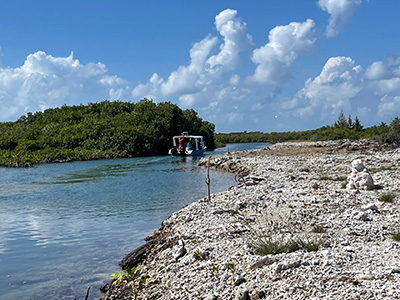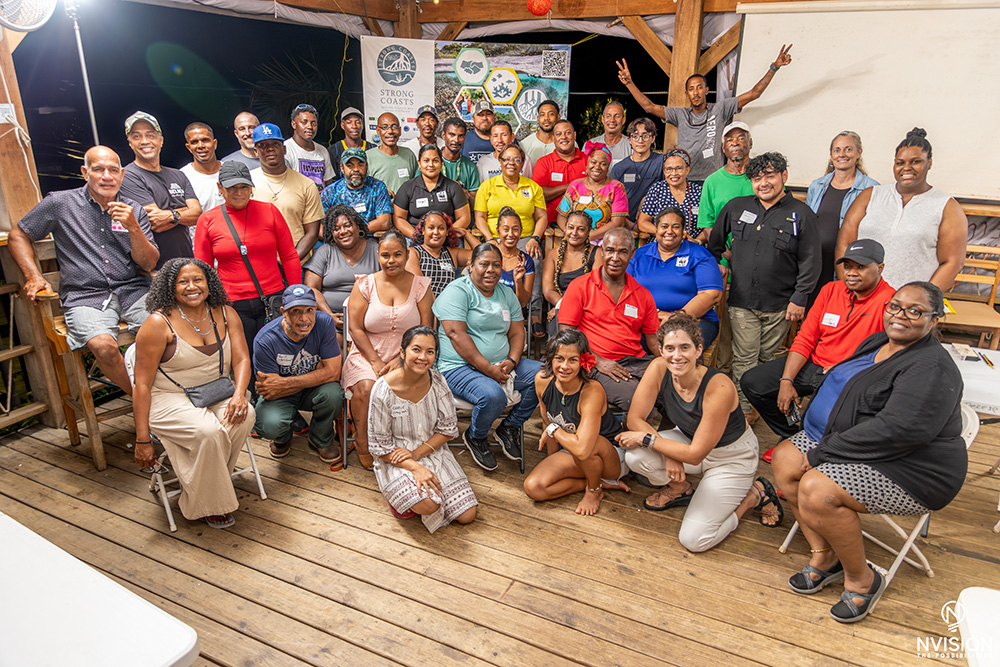By Georgia Jackson, College of Arts and Sciences
Rebecca Zarger and Maya Trotz have different approaches to addressing climate change. Zarger, a professor in the
Department of Anthropology, works at the intersection of environmental anthropology
and coastal sustainability to shape youth science education, while Trotz, a professor
in the Department of Civil Engineering, works on ridge-to-reef nature-based solutions.
Their commitment to creating livable futures for coastal communities in the Tampa
Bay area and beyond is one reason the National Science Foundation (NSF), in collaboration
with Every Page Foundation, named both women Ocean Decade Champions.
“These awards support women who are already in the field, mentoring students, mentoring
community fellows, working with community organizations to collaboratively design
and enhance ongoing activities that support professional development, not just for
the university researchers, but for our partners and collaborators,” Zarger said.
“It provides an opportunity for us to develop skill sets that can be intergenerational
with regards to building the next generation of leaders.”
Zarger, Trotz and the other champions are all working on projects funded by the NSF Coastlines and People program. Each will receive a additional funding to support leadership activities, networking opportunities, technical and communications training and cross-disciplinary and intercultural scientific endeavors.

Coastal development puts mangroves and coral reefs, which help protect communities from storm hazards, at risk. | Photo credit: Rebecca Zarger
For Zarger and Trotz, the award will provide supplemental support to an ongoing project,
a large interdisciplinary endeavor linking multiple U.S. universities and conservation
and marine science organizations called “Strong Coasts,” which seeks to reduce risks
from hazards like storm surge, confront environmental degradation, enhance communities'
adaptive capacities and advance public and private investment in disaster risk prevention
and reduction.
"One of our goals is to support greater involvement and integration of community members
in coastal areas in policy making and decision making around how to respond to increased
risks from hazards," said Zarger.
Zarger and Trotz have already begun hosting community workshops and skills-building
activities.
“The downstream impact of these programs extends beyond individual skill-building,”
Zarger and Trotz wrote in their application to the National Science Foundation. “They
contribute to the cultivation of a more representative and effective marine science
and conservation community. This, in turn, enhances the capacity of the scientific
community to address and solve complex environmental challenges facing coastal communities
around the world. By prioritizing a science community that is nurturing for everyone,
we not only enrich the state of marine science but also enhance its relevance and
applicability to the communities it serves.”
Work on the project, which seeks nature-based solutions to environmental issues that
directly address coastal community needs and priorities, began in 2022 and will continue
through 2027.
